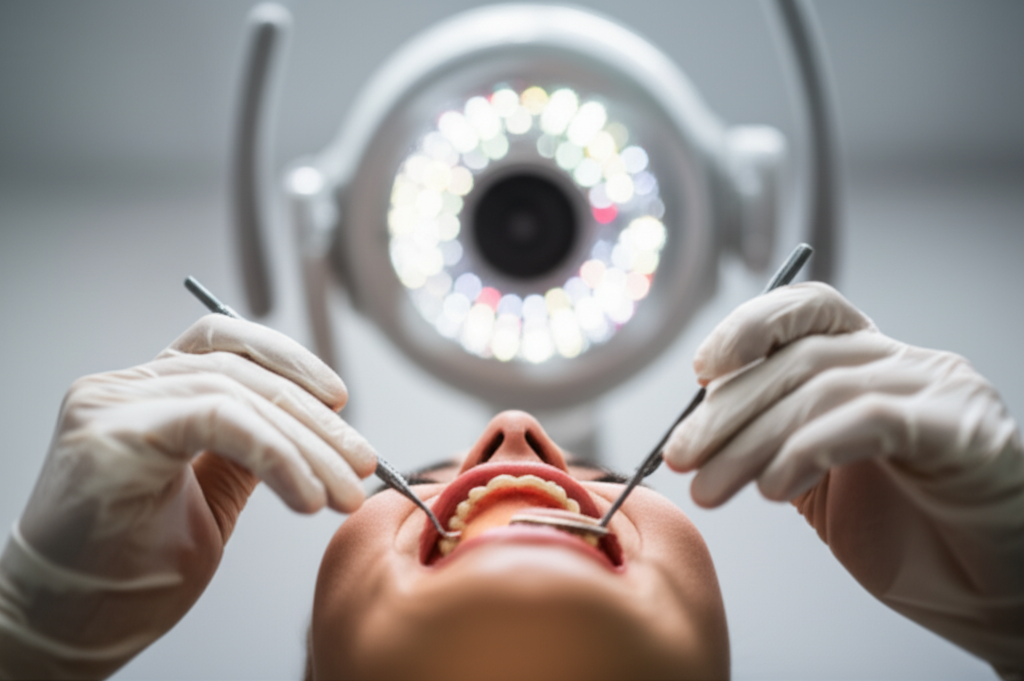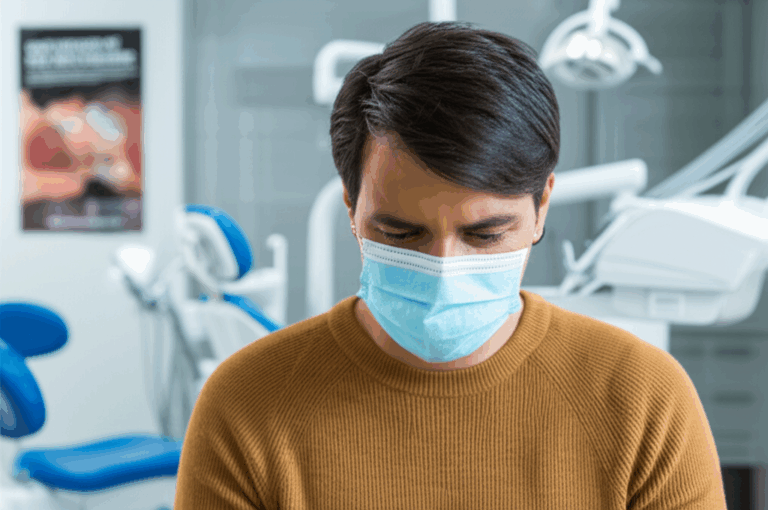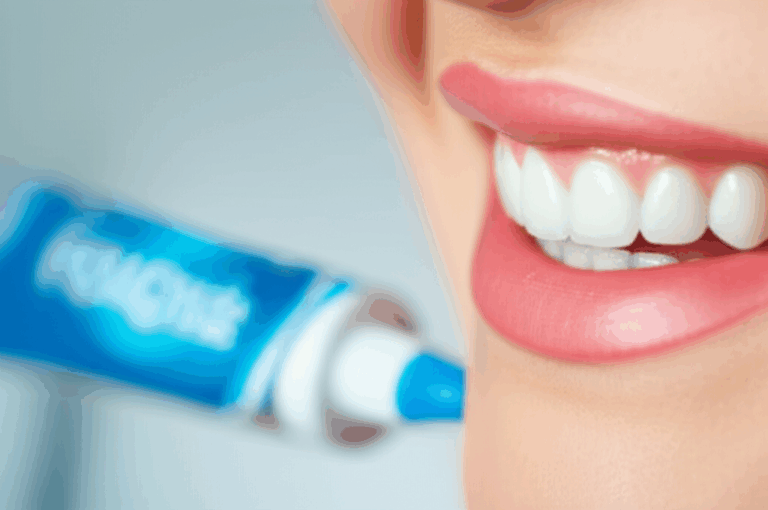
Why Are People Afraid of the Dentist? Understanding and Overcoming Dental Anxiety
That heart-thumping, stomach-turning worry before a dentist visit—if you’ve ever felt it, you’re definitely not alone. Maybe your hands get sweaty at the smell of cleaning chemicals or the high-pitched sound of a dental drill. Or maybe you keep pushing back your appointments, telling yourself you’ll go “next week”—for the fifth month in a row.
Let me comfort you right away: being afraid of the dentist isn’t just common, it’s totally normal. In fact, studies show that about one in five adults feels worried about seeing the dentist, and up to 15% have a real phobia. You aren’t weak, you aren’t making it up, and millions of people feel just like you do.
Still, there’s a big question: Why does a simple trip to the dentist make people so stressed out? In this article, we’ll look at why people are scared, what’s happening in your mind and body, and how you can take charge of your dental health.
In This Article
- What Is Dental Anxiety? Is It Really That Common?
- Unpacking the Fear: Why Are People Afraid of the Dentist?
- The Science Behind the Fear: How Your Brain and Body React
- The Consequences of Avoidance
- When Fear Becomes a Phobia: Understanding Odontophobia
- How to Take Charge: Calming Your Nerves and Building Confidence
- Your Key Takeaways
What Is Dental Anxiety? Is It Really That Common?
Let’s get the facts straight. Dental anxiety means feeling uneasy, nervous, or scared about going to the dentist. For some people, it’s just a tiny worry before a normal cleaning; for others, it’s so big they stay away from the dentist for years. When this fear is really bad and stops you from living your life or taking care of your health, dentists call it dental phobia or odontophobia.
But is it normal? Yes! Studies from groups like the American Dental Association and the British Dental Health Foundation say:
- 20–40% of adults have some dental anxiety
- 5–15% have strong dental phobia
- Women report dental fear about twice as often as men
- Dental fear often starts in childhood, sometimes because a parent or caregiver is scared of dental work too
Now let’s get to the next question: Why?
Unpacking the Fear: Why Are People Afraid of the Dentist?
There’s not just one reason. Instead, being afraid of the dentist usually comes from lots of things—bad memories, how our brains work, and even things we pick up from others. Let’s look at those one by one.
Traumatic Past Experiences
A lot of people are scared of the dentist because something bad happened to them before—maybe when they were young, or even just last year. Maybe a shot hurt more than it was supposed to, or a filling took forever and left you hurting after. Not being able to talk or move while lying back in a bright light can make anyone feel scared.
If a dentist was rude or didn’t care about your pain, that memory can really stick—and last a long time.
Fact: About 70–80% of people with really bad dental fear say it started with one strong bad memory, usually as a kid.
Fear of Pain and Discomfort
Let’s be honest: no one likes pain. And even though today’s dentists make things a lot easier, worry about shots, drilling, or scraping tools is still the biggest reason people feel anxious. Even if you’ve never had pain from the dentist, hearing stories or seeing things about it can make you nervous.
Some special worries include:
- Needle phobia: Just seeing a needle makes some people panic.
- Drill sounds or pressure: The high sound from drilling? For lots of people, it’s just too much.
- Sensitive gag reflex or fear of choking: Lying back with tools in your mouth can feel scary.
Up to 80% of people who feel nervous at the dentist say pain, especially from needles, is their main fear.
Loss of Control and Vulnerability
Think about lying on your back in the dentist chair, mouth open, bright light, hands at your side. You can’t talk, move much, or even see what’s going on. That loss of control makes a lot of people feel very uncomfortable—even if nothing actually hurts.
If the dentist doesn’t explain what’s happening or doesn’t answer questions, the feeling gets worse.
Embarrassment and Fear of Judgment
Here’s something most people don’t want to say: sometimes it’s not the pain, but worry about being judged that matters more. Maybe you feel your teeth aren’t clean enough or straight enough. Maybe you haven’t been to the dentist in a while and are afraid you’ll get a lecture.
Other worries:
- Bad breath: Worrying about what the dentist might smell.
- Looks: Feeling self-conscious about your teeth or gums.
- Guilt or shame: For not flossing or missing visits.
But remember, dentists see every kind of mouth—yours isn’t the “worst.” Still, the worry can feel huge.
Sensory Overload
Even if you haven’t had a bad experience, the overall feeling of being at the dentist can be too much.
- Smells: The strong smell of cleaners or even burning tooth.
- Sounds: Drills, suction, talking in the background.
- Sights: Bright lights, shiny tools, faces close by.
- Feeling trapped: Lying back, not able to move.
For some—especially people with autism, PTSD, or strong sensitivity—the whole thing just feels too loud and bright.
Indirect Influences and Learned Fears
Not all dental fears come from your own visits. Sometimes you “catch” it from family or even from stories.
- Media and TV: Movies and television often make dentists look scary or mean for laughs.
- Stories from friends and family: Hearing about someone else’s bad time at the dentist can set off your own worries.
- Parents’ fears: If your parent hated the dentist, you probably picked up on that—even if no dentist ever hurt you.
Kids whose parents are scared of the dentist are much more likely to be scared, too.
The Science Behind the Fear: How Your Brain and Body React
Ever wonder what happens inside your mind and body when you get nervous before seeing the dentist? Let’s break it down.
Fight-or-Flight: Your Built-in Alarm
Imagine being chased by a wild animal. Your brain gives you a burst of stress chemicals (like adrenaline), making your heart beat fast, your muscles tight, and getting you ready to run or fight.
The dentist’s office isn’t a real danger, but your brain can’t always tell the difference between real and imagined threats. If you’re worried about dental care, your “fight-or-flight” switches on:
- Body: Fast heartbeat, sweaty hands, tense muscles, quick breathing, feeling dizzy.
- Feelings: Dread, panic, hard time sitting still.
- After: Some people feel wiped out after their appointment from the stress.
This is normal—your body’s just trying to keep you safe, even if it’s being fooled.
How Dental Fear Builds Up
Your brain links what you feel to what you experience. One uncomfortable visit, especially as a kid, can make your mind “sound an alarm” for every visit after. Each time you put off the dentist, your brain learns: “Okay, I stayed safe by not going—let’s skip it next time too!”
That’s why dental fear usually gets bigger over time, unless you break the pattern.
The Consequences of Avoidance
You might think, “It’s no big deal if I skip the dentist this year.” But here’s the problem—the longer you wait, the more likely small things turn into big problems.
This is the cycle that happens:
It’s just like a small leak in the roof—if you ignore it, you get a mess.
If this keeps happening, you get:
- More cavities, gum problems, even missing teeth.
- Bigger dental bills.
- Feeling bad about yourself; some people stop smiling or meeting others.
- Infections that can mess with your whole body’s health.
When Fear Becomes a Phobia: Understanding Odontophobia
So, when does being nervous turn into a “phobia”?
Dental Anxiety vs. Odontophobia—What’s the Difference?
Dental anxiety is when you feel nervous or even scared before or during a visit, but you’ll still go if you need to.
Dental phobia (Odontophobia) is a much bigger, often unreasonable fear that makes you keep away from dental care, even if you know you really need it.
Signs of odontophobia:
- Always avoiding: Skipping the dentist no matter how much your teeth hurt.
- Panic attacks: Shaking, sweating, feeling faint just thinking about a visit.
- Not sleeping before appointments.
- Feeling completely out of control or like you might faint.
If this sounds like you, don’t worry—there’s help, both from dentists and from counselors.
Why Fear Gets Worse
Here’s how dental fear grows:
But the good news: you CAN break this loop.
How to Take Charge: Calming Your Nerves and Building Confidence
If you’re reading this, you’ve already made a huge step—understanding your fear is how you start fixing it!
Let’s look at real ways you can get back to healthy teeth, even if you’re afraid. You don’t have to do it all at once.
1. Pick the Right Dentist and Team
- Find a kind dentist. Many dentists love to help nervous people—ask about this when you call.
- Look at reviews or ask others. Feeling at ease with your dentist matters most.
- See what the office offers. Some places have music, TVs, or even comfort items like soft blankets.
2. Say What’s on Your Mind
Dentists and staff can’t guess what you’re feeling. The more you share—“I’m scared of shots” or “I had a bad experience before”—the more they can help.
You might:
- Choose a hand signal to pause things if you need a break.
- Have shorter, more frequent visits. Smaller steps can be easier.
- Ask questions. Some people calm down when they know what’s coming.
3. Try Simple Relaxation Tools
- Deep breaths: Breathe in slowly for 4 counts, hold, breathe out for 4.
- Bring headphones or listen to music.
- Distractions: Squeeze a stress ball or bring a small fidget toy.
- Imagine a relaxing place: Like the beach or woods.
4. Sedation: Help When You Need It
If your fear is strong, talk to your dentist about relaxing medicine:
- Laughing gas (nitrous oxide): Works fast and wears off quickly.
- Oral medicine: A pill that calms you down—makes you sleepy but awake.
- IV sedation: For serious fear or longer work (the dentist will watch you closely).
- General anesthesia: Only for special, big procedures.
Sedation isn’t only for surgery—it helps a lot of people break the cycle of worry.
5. Counseling or Therapy
Sometimes your fear is too big to tackle alone. Treatments like Cognitive Behavioral Therapy (CBT) or even hypnosis work well for dental fear. Just a few visits with a professional can help a lot.
A counselor will help you:
- Find your biggest triggers
- Change how you think about the dentist
- Slowly ease you into feeling more comfortable
6. Bring Someone With You
Having a friend or family member with you can calm your nerves. Sometimes just having someone there makes things better.
7. Small Steps at Home
Sometimes what helps most is feeling in control again:
- Take small steps: Schedule a visit just to say hello to the staff.
- Brush and floss daily: Good habits help avoid bigger problems.
- Learn about dental care: The more you know, the less scary your next visit is.
For tips on things like crowns and how a crown and bridge lab can help make things comfortable, check our guides.
8. Special Care for Kids and Sensory Differences
Kids, teens, and adults with autism, sensory issues, or strong anxiety may need extra help. Many dental offices now have special visits with dim lights, quiet rooms, or a slower pace. If you or your child needs this, ask the dentist about it.
Who Is This For? Am I the Only One Who Feels This Way?
Dental anxiety and phobia can happen to anyone. It doesn’t matter if you’ve never had a cavity, or if you’ve been to the dentist a hundred times.
You might be more likely to have dental fear if:
- You had a painful or scary dental visit, especially as a kid.
- Needles or doctor offices make you nervous in general.
- You gag easily or are extra sensitive.
- You have anxiety, panic, or post-traumatic stress in other parts of your life too.
- Family members (especially parents) don’t like going to the dentist.
- You’ve put off care and now feel embarrassed.
The great thing is: You’re never too late, too anxious, or too behind to start feeling better about your teeth.
Your Key Takeaways
Let’s remember:
- Dental fear is normal. About 20–40% of adults feel it—you’re not alone.
- Main reasons: Bad past experiences, worry about pain or control, embarrassment, too much noise or lights, and fears picked up from others.
- Dental anxiety isn’t weakness—it’s a normal reaction.
- Avoiding the dentist makes things worse in the long run.
- Dentists can help: With relaxing medicine, simple calm-down steps, therapy, and—most of all—kindness.
- Talking is important. Be honest with your dentist about what scares you.
- Taking small steps is a big deal. Even just going in to talk helps break the fear.
- There’s help and care for everyone, including people with special needs or extra anxiety.
You deserve a healthy, happy smile, and with the right help, you can have it—even if you’re worried.
If you’d like to know more about today’s dental materials—like zirconia crowns or new ceramic options—check out our other guides.
Next Steps: How to Get Started
Ready to try getting back to good dental health? Here’s how:
- Find a dentist known for being gentle—ask around if you’re not sure.
- Make your first visit just to meet the dentist and talk—no pressure.
- Bring a friend or music to help you relax.
- Make a list of your questions or worries to share at your appointment.
- Celebrate every step—each visit is progress!
Remember, just understanding your own fear is the best way to beat it. Today’s dental care is all about your comfort. Whether you need a simple check-up, advice about more complicated work, or even a therapist who knows about dental fear, you aren’t alone.
If you’re interested in new dental tech, from digital tools to 3D printing, check out our resources for easy info.
Your smile, comfort, and confidence are important—so take that first small step today.
Further Reading and Resources
(Medically checked by a licensed dentist. Sources include the American Dental Association, Community Dentistry, and other studied journals.)
A healthy smile should never mean giving up your comfort or peace of mind. The first appointment might feel tough, but every journey starts with one step. You can do this.








